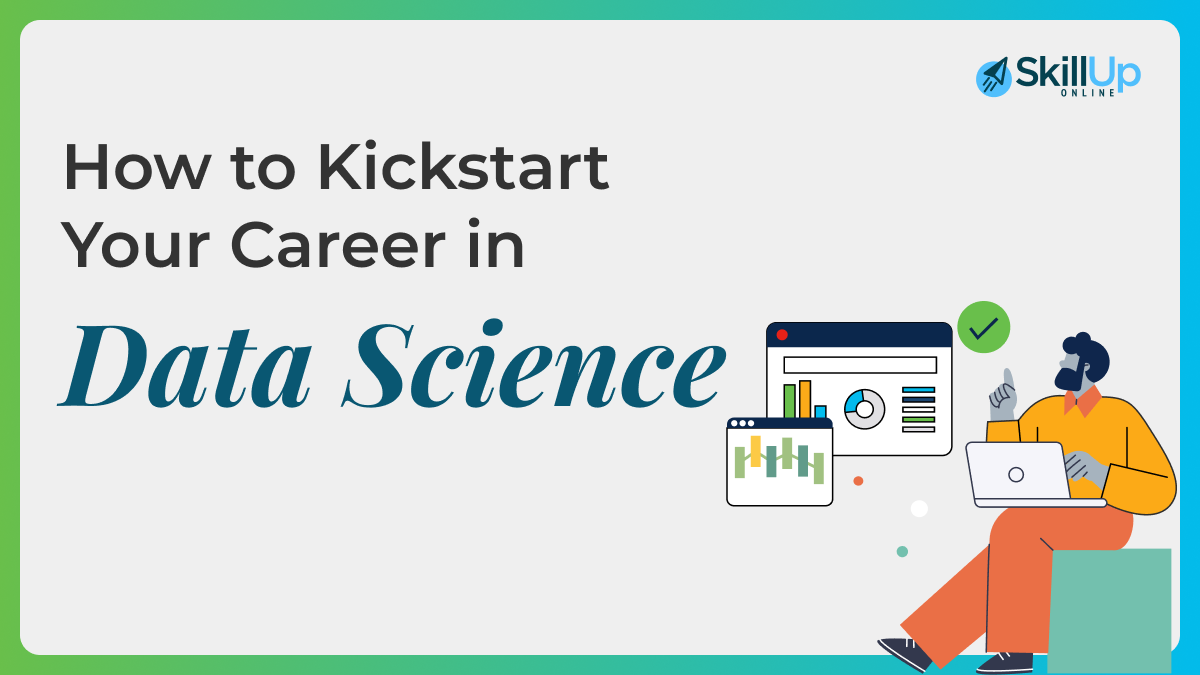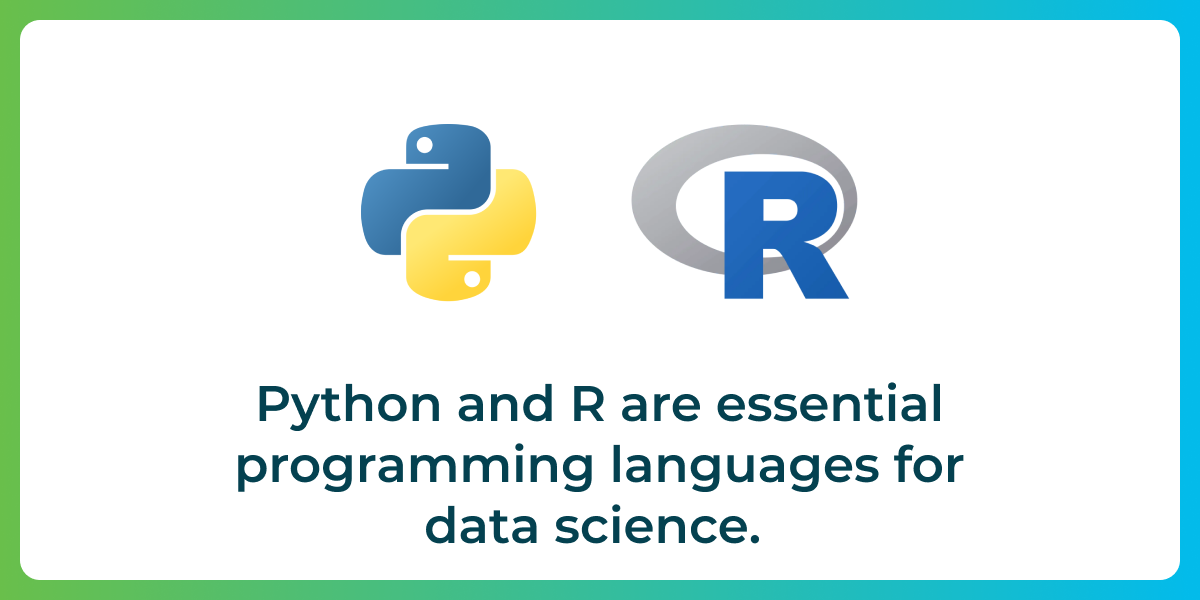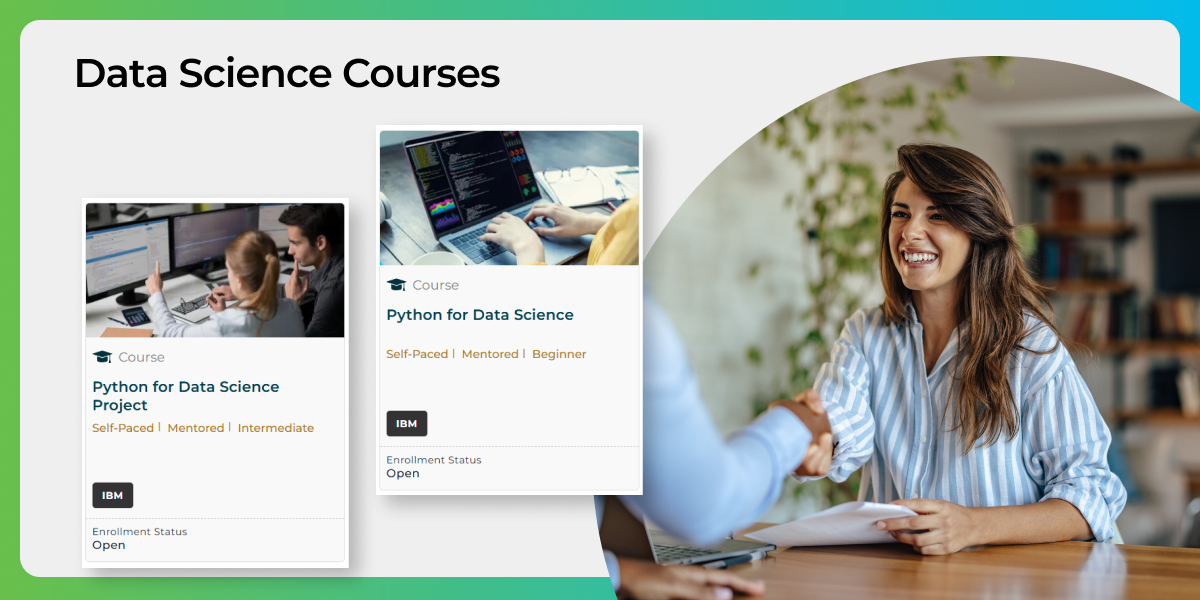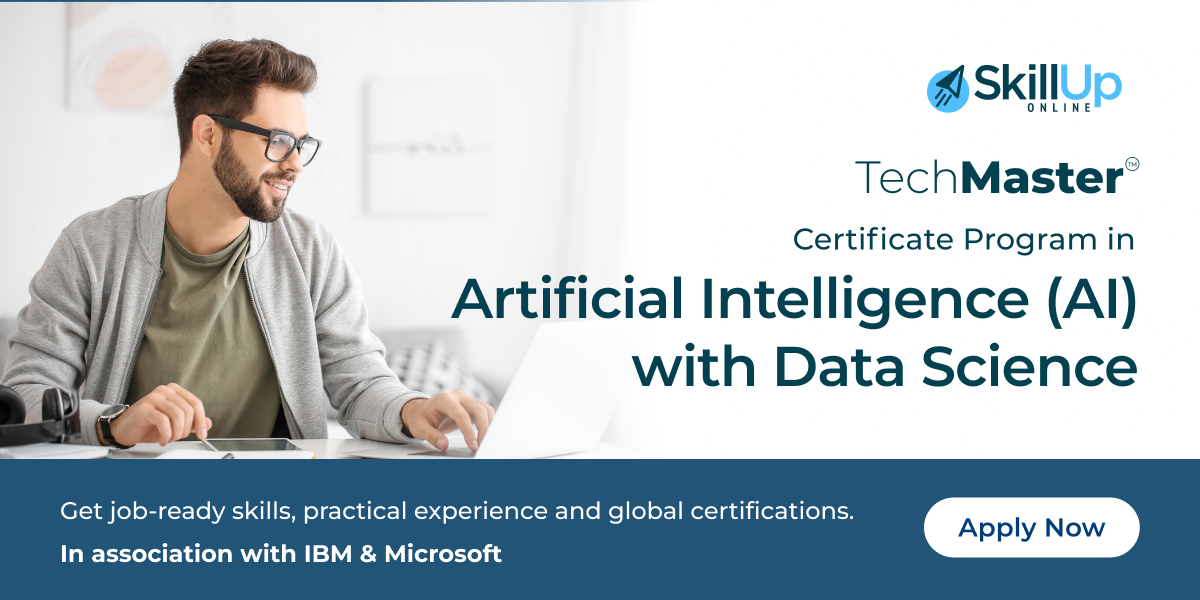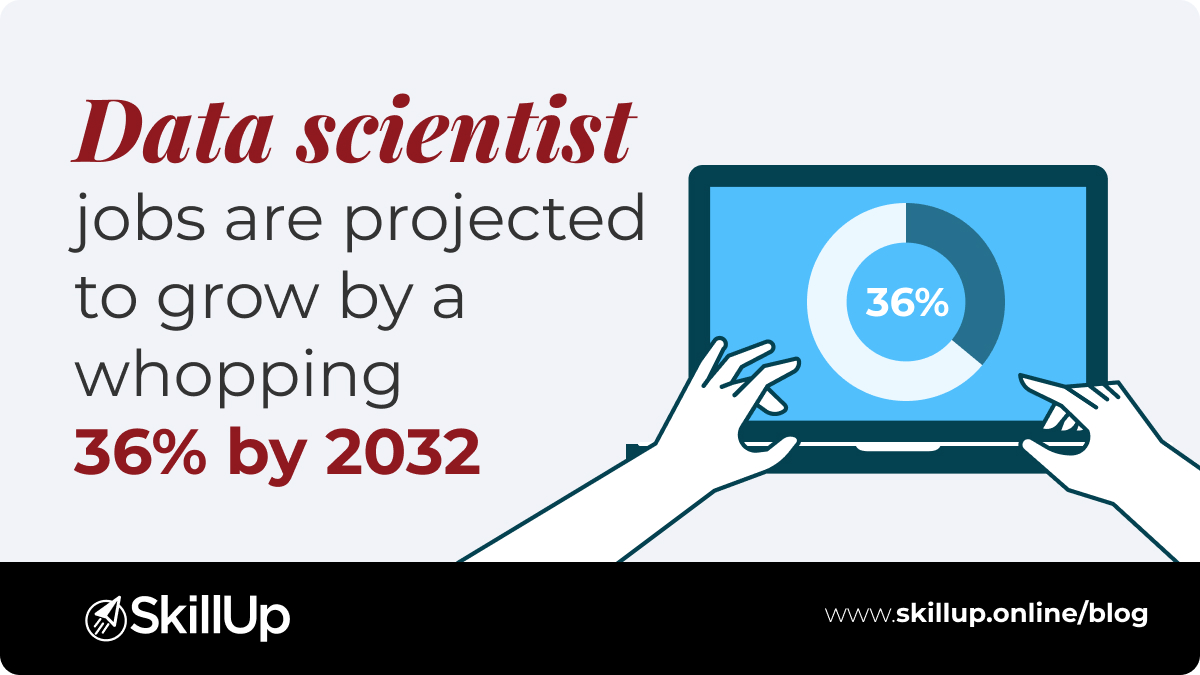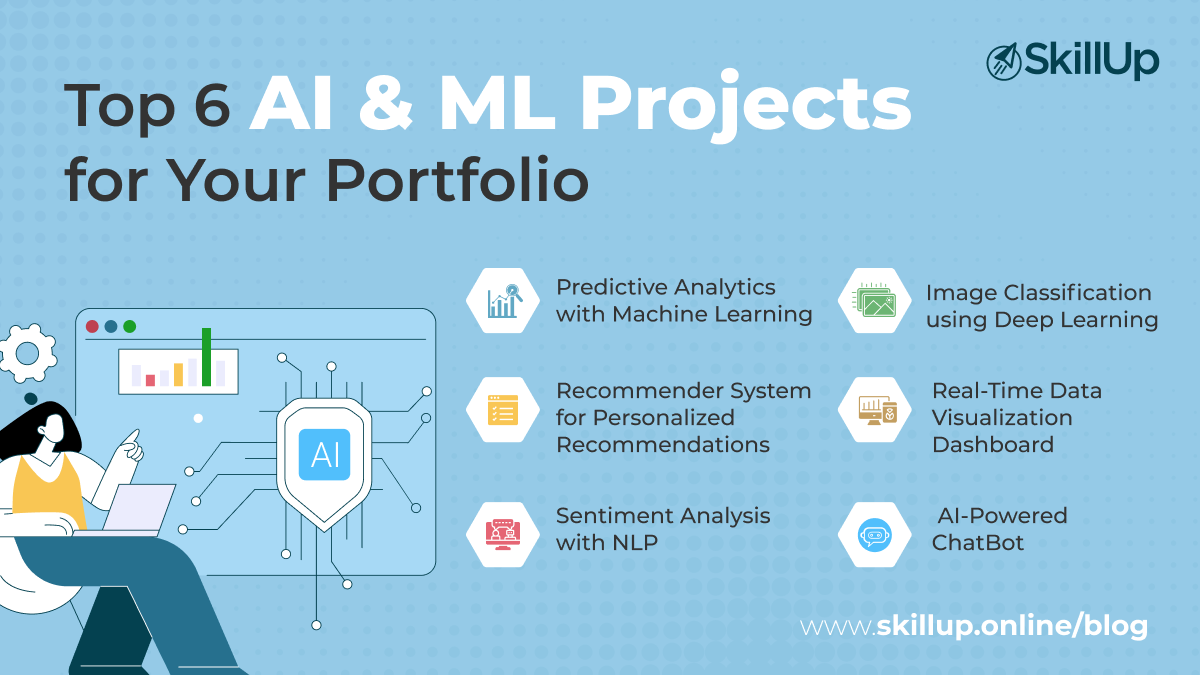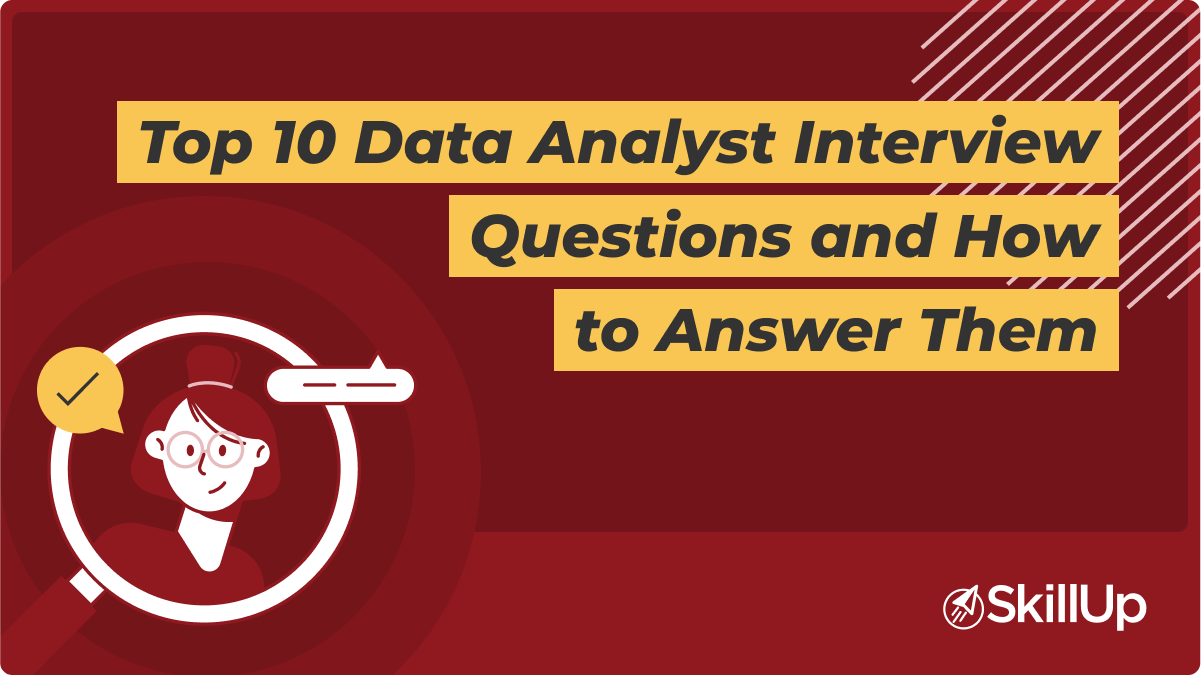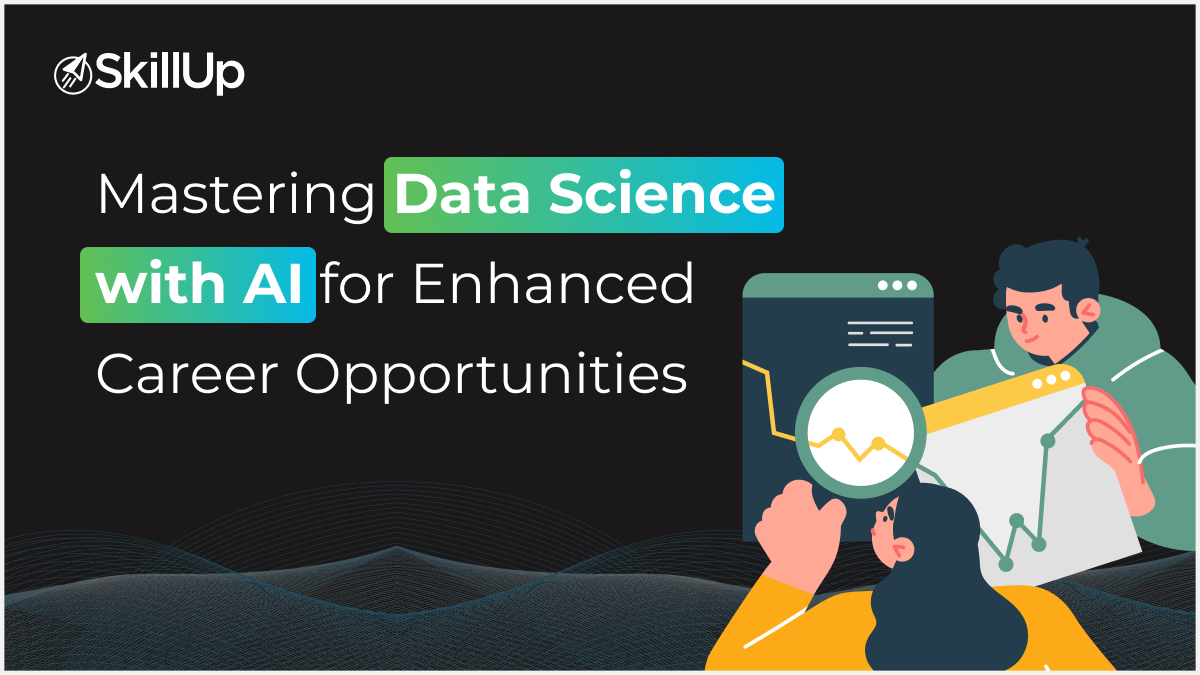Have you been thinking about kickstarting your career in data science? Kudos! You’ve already taken the first step towards a rewarding and successful career.
Data science is one of the hottest fields right now, and it offers a fantastic blend of problem-solving, creativity, and technology. In fact, according to the US Bureau of Labor Statistics, data science jobs will grow 10x more than other job roles. So, whether you’re fresh out of college or looking to switch careers, data science is your gateway toward a fulfilling career.
So, here’s a step-by-step guide to help you jumpstart your career in data science:
Understand What Data Science Is
Before jumping in, it’s crucial to understand what data science entails so you can figure out if data science is for you. Data science, at its core, involves collecting, analyzing, and interpreting large sets of data to make informed decisions. It combines elements of statistics, computer science, and domain expertise.
Think of it like being a detective. Instead of solving crimes, you’re uncovering insights hidden within data. To do this, you use various tools and techniques to find patterns and predict trends that then help organizations make data-driven decisions.
Assess Your Current Skills
Start by evaluating your current skill set. Do you have any experience with programming? Are you comfortable with mathematics and statistics? Here are some core skills you’ll need to build your career in data science:
- Programming: Languages like Python and R are essential.
- Statistics and Mathematics: Understanding of statistical methods and linear algebra will go a long way.
- Data Wrangling: The ability to clean and manipulate data.
- Machine Learning: Basics of algorithms and how to apply them.
- Data Visualization: Tools like Tableau or libraries like Matplotlib and Seaborn in Python.
Learn the Basics
If you’re new to these areas, don’t worry. There are plenty of resources to get you started. Online platforms like SkillUp, Coursera, and edX offer comprehensive courses. Start with beginner-friendly ones, such as:
- “Foundations of Data Science” by SkillUp
- “Python for Data Science” by Coursera
- “Introduction to Data Science” on edX
You can also start by reading some beginner-friendly books, such as “Python Data Science Handbook” by Jake VanderPlas and “ Introduction to Statistical Learning” by Gareth James, Daniela Witten, Trevor Hastie, and Robert Tibshirani.
These resources will help you build a strong foundational understanding of the important data science concepts. And they will provide you with the essential skills and knowledge you need to get started in data science.
Build a Strong Foundation in Programming
Python is often recommended for beginners due to its simplicity and vast community support. Start by learning the basics of Python. Once you’re comfortable, move on to data-specific libraries like:
- Pandas: For data manipulation and analysis
- NumPy: For numerical computing
- Matplotlib and Seaborn: For data visualization
- Scikit-learn: For machine learning.
There are countless tutorials available online, but it’s crucial to practice coding regularly. Websites like LeetCode, HackerRank, and Codecademy offer exercises to hone your skills. You can also opt for introductory courses like Python for Data Science by SkillUp Online, which will take you from zero to programming in Python in a matter of hours.
Dive into Data Analysis and Visualization
Understanding how to analyze and visualize data is crucial. These skills help you interpret data and communicate your findings effectively. Practice by working with real datasets available on platforms like Kaggle. Here are some steps to get started:
- Choose a Dataset: Kaggle’s datasets are a goldmine. Pick something that interests you.
- Explore the Data: Use Pandas to load the data and get a feel for it.
- Clean the Data: Handle missing values, remove duplicates, and format the data correctly.
- Analyze the Data: Use statistical methods to find trends and patterns.
- Visualize the Data: Create plots and graphs to represent your findings.
Learn Statistics and Machine Learning
A good grasp of statistics is vital for data science. Brush up on key concepts like probability, distributions, hypothesis testing, and regression analysis.
Next, delve into machine learning. Start with supervised learning algorithms like linear regression, logistic regression, decision trees, and k-nearest neighbors. Scikit-learn’s documentation and tutorials are an excellent place to start.
As you progress, explore unsupervised learning (like clustering and dimensionality reduction) and advanced topics like neural networks and deep learning.
Work on Real-World Projects
The best way to learn data science is by practicing it. Apply your skills to real-world problems. Participate in Kaggle competitions, contribute to open-source projects, or even create your own projects. Some project ideas include:
- Analyzing trends in social media data.
- Predicting stock prices.
- Building a recommendation system.
Document your projects thoroughly and share them on GitHub. This will not only showcase your skills but also serve as a portfolio for potential employers.
Network and Engage with the Community
Networking is a powerful tool. Join data science communities on LinkedIn, Reddit, and specialized forums like Data Science Central and Kaggle. Attend meetups, webinars, and conferences. Engage with other learners and professionals to gain insights and stay updated with industry trends.
Seek Internships and Entry-Level Positions
Practical experience is invaluable. Look for internships or entry-level positions to gain hands-on experience. Even if the pay isn’t great initially, the experience and skills you gain will be worth it. Check job boards like LinkedIn, Indeed, and Glassdoor regularly.
Next Steps for You
Overall, embarking on a career in data science can be both exciting and challenging. It’s a field that rewards curiosity, problem-solving skills, and continuous learning. The key to a successful data science career is staying curious and keeping up-to-date with industry trends.
By following these steps, you’ll be well on your way to becoming a data scientist. Remember, everyone starts somewhere, and persistence is key.
If you’re looking for a more comprehensive study, SkillUp Online’s TechMaster Certificate Program in AI with Data Science is designed to build job-ready skills in the fields of AI and data science. This program covers everything from foundational concepts to advanced techniques, ensuring you’re well-prepared for a successful career.
If you would like to know more about how you can build skills and get started in the exciting world of data science, contact our Learner Support Team at [email protected]. They will be more than happy to guide you on your next steps.
SkillUp Online
